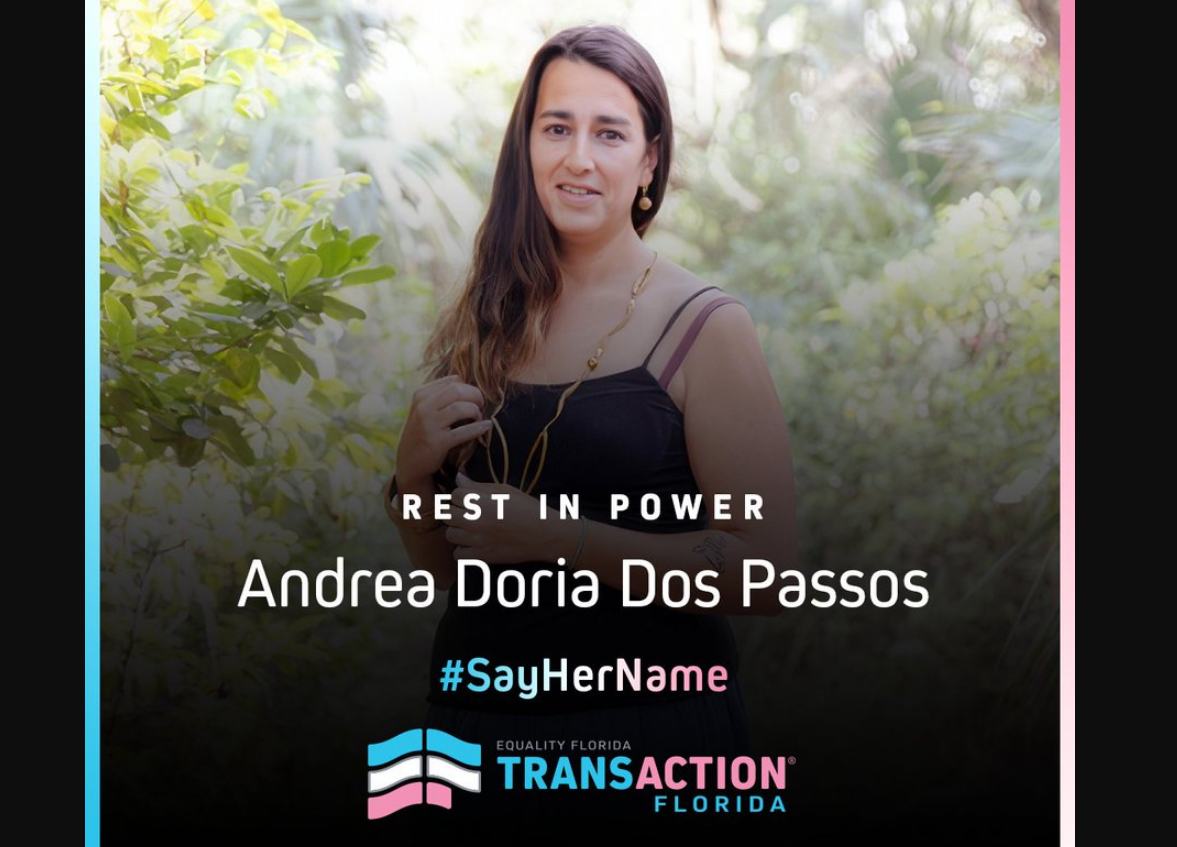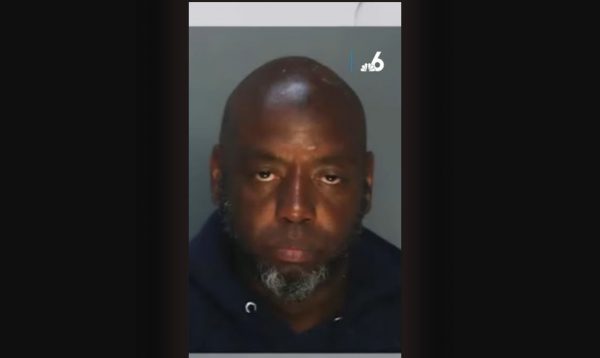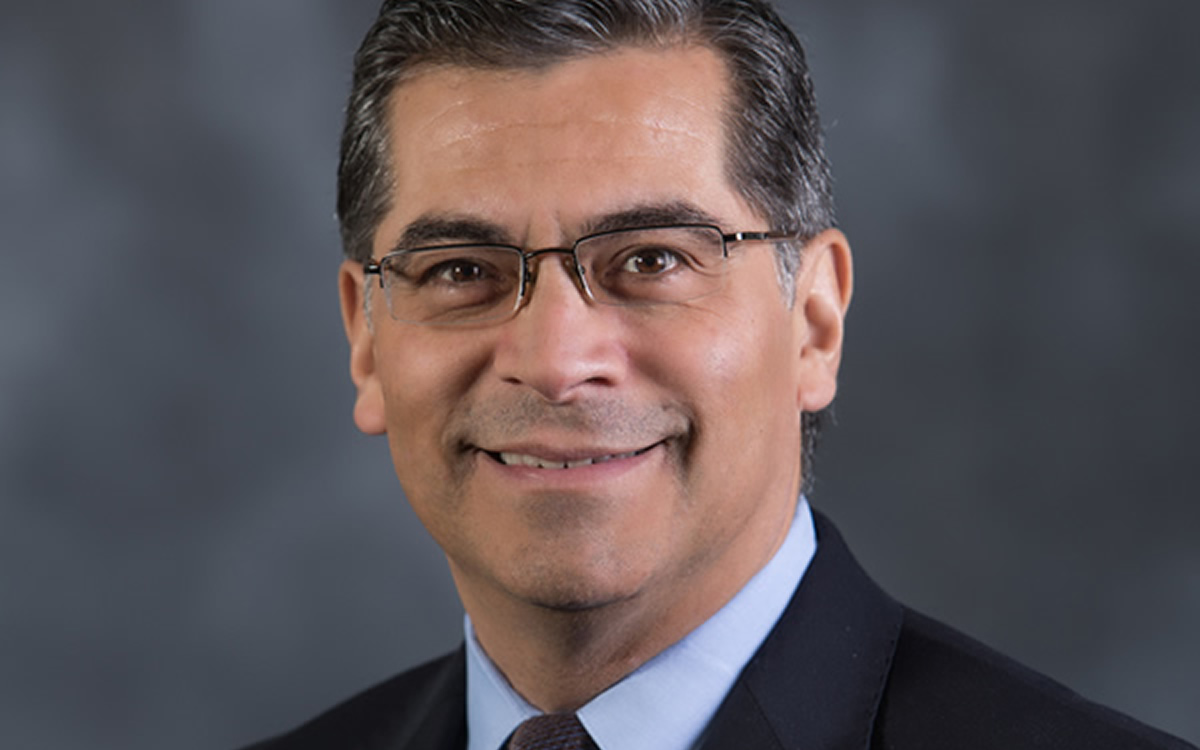National
Puerto Rico police agree to strengthen hate crime response
The Justice Department announced agreement to reform the department on Dec. 21

DOJ ordered the PRPD to “collect accurate and reliable data hate crimes” on “an ongoing basis” and submit it to the Federal Bureau of Investigation for inclusion in its annual Hate Crimes Statistics report. (The FBI currently reports statistics based on sexual orientation, but not gender identity and expression. It will begin to collect transgender-specific data this year as outlined in the Matthew Shepard and James Byrd, Jr., Hate Crimes Prevention Act that President Obama signed in 2009. The agency will begin to report them in 2014.)
The department agreed to develop policies that will improve the way its officers interact with transgender people while in custody. The PRPD will also provide officers with bias-free police trainings at least every two years and annually after 2017. Components of these sessions will include “the protection of civil rights as a central part of the police mission” and “arbitrary classifications and stereotyping” based on sexual orientation, gender identity and expression and other factors.
“These provisions are designed to promote police services that are equitable, respectful, and free of unlawful bias in a manner that supports broad community engagement and effective crime prevention,” the agreement reads. “These provisions will enable PRPD to provide members of the public with equal protection of the law, without bias based on race, color, ethnicity, national origin, religion, gender, disability, sexual orientation, gender identity or gender expression.”
“We appreciate the hard work of [then-Gov. Luís] Fortuño, [PRPD] Superintendent Hector Pesquera and their staff,” Thomas E. Perez, assistant attorney general for the DOJ Civil Rights Division, said in a press release that announced the agreement. “Together, and with great input from the public, we have designed a comprehensive blueprint for reform that provides a solid foundation that will professionalize and support the hardworking men and women of PRPD as they protect the people of Puerto Rico.”
The DOJ’s announcement comes after its damning Sept. 2011 report that listed an inadequate response to hate crimes as among the PRPD’s numerous deficiencies.
More than 30 LGBT Puerto Ricans have been killed since gay teenager Jorge Steven López Mercado’s decapitated, dismembered and partially burned body was found alongside a remote roadside in Nov. 2009.
A judge sentenced Juan José Martínez Matos to 99-years in prison after he pledged guilty to the crime, but the Puerto Rico Department of Justice’s own reports indicate Puerto Rican prosecutors have yet to convict anyone under the island’s hate crimes law that includes both sexual orientation and gender identity and expression. The Puerto Rico Senate in late 2011 approved a proposal that would have eliminated LGBT-specific protections from the aforementioned statute.
Pedro Julio Serrano and other Puerto Rican LGBT advocates repeatedly criticized Fortuño and his administration for what they contend was an unwillingness to speak out against anti-LGBT violence in the American commonwealth in the wake of López’s brutal death that sent shockwaves across the island and around the world.
“It’s definitely too little too late for the outgoing administration,” Serrano told the Washington Blade in response to the DOJ agreement. “But it’s a good blueprint and protocol that is necessary to finally have this in place for the prosecutors in Puerto Rico so they can work on the hate crimes on the island and make sure they are correctly prosecuted and investigated as hate crimes because it hasn’t happened in Puerto Rico.”
The DOJ also met with Gov. Alejandro García Padilla, who succeeded Fortuño on Wednesday, to discuss the agreement.
“We look forward to working with Governor-elect García Padilla and his incoming administration to finalize the agreement and begin the critical work of rebuilding PRPD,” Perez said before the current governor took office. “Ensuring effective, constitutional policing is not a partisan issue, and we appreciate the commitment of Gov. Fortuño and Governor-elect García Padilla to the reforms embodied in the agreement. The successful implementation of the reforms contained in this agreement will help to reduce crime, ensure respect for the Constitution and restore public confidence in PRPD.”
García pledged during his campaign he would support a number of LGBT-specific proposals that include the addition of sexual orientation and gender identity and expression to the island’s anti-employment discrimination law, civil unions for same-sex couples and including LGBT Puerto Ricans in the island’s domestic violence statutes. Serrano urged the incoming administration to amend the hate crimes law to allow prosecutors to introduce bias-related evidence at the start of a trial as opposed to during the sentencing phase.
“We want it from the get go to be prosecuted as a hate crime so the evidence and a way the case is prosecuted is a following the motivation of the crime and it’s not left to the end of the process where usually after they get a conviction or someone pleads guilty then they don’t have to deal the motivation because they already got what they wanted,” he said, adding he feels both the PRPD and the Puerto Rico Justice Department do not understand how to address hate crimes. “The only way to curb anti-LGBT violence in Puerto Rico is we finally prosecute these as hate crimes and people understand the motivation behind them was anti-LGBT.”
The DOJ agreement will take effect on April 15.
Florida
Homeless transgender woman murdered in Miami Beach
Andrea Doria Dos Passos attacked while she slept

Gregory Fitzgerald Gibert, 53, who was out on probation, is charged with the second-degree murder of 37-year-old Andrea Doria Dos Passos, a transgender Latina woman who was found deceased in front of the Miami Ballet company facility by a security guard this past week.
According to a Miami Beach Police spokesperson the security guard thought Dos Passos was sleeping in the entranceway around 6:45 a.m. on April 23 and when he went to wake her he discovered the blood and her injuries and alerted 911.
She was deceased from massive trauma to her face and head. According to Miami Beach police when video surveillance footage was reviewed, it showed Dos Passos lying down in the entranceway apparently asleep. WFOR reported: In the early morning hours, a man arrived, looked around, and spotted her. Police said the man was dressed in a black shirt, red shorts, and red shoes.
At one point, he walked away, picked up a metal pipe from the ground, and then returned. After looking around, he sat on a bench near Dos Passos. After a while, he got up and repeatedly hit her in the head and face while she was sleeping, according to police.
“The male is then seen standing over her, striking her, and then manipulating her body. The male then walks away and places the pipe inside a nearby trash can (the pipe was found and recovered in the same trash can),” according to the arrest report.
Police noted that in addition to trauma on her face and head, two wooden sticks were lodged in her nostrils and there was a puncture wound in her chest.
Victor Van Gilst, Dos Passos’s stepfather confirmed she was trans and experiencing homelessness.
“She had no chance to defend herself whatsoever. I don’t know if this was a hate crime since she was transgender or if she had some sort of interaction with this person because he might have been homeless as well. The detective could not say if she was attacked because she was transgender,” said Van Gilst.
“She has been struggling with mental health issues for a long time, going back to when she was in her early 20s. We did everything we could to help her. My wife is devastated. For her, this is like a nightmare that turned into reality. Andrea moved around a lot and even lived in California for a while. She was sadly homeless. I feel the system let her down. She was a good person,” he added.

The Miami Police Department arrested Gibert, collected his clothing, noting the red shorts were the same type in the video and had blood on them. Blood was also found on his shoes, according to police. He was taken into custody and charged.
“The suspect has an extensive criminal record and reportedly was recently released from custody on probation for prior criminal charges. Police apprehended the suspect in the city of Miami and the investigation is currently ongoing. This case is further evidence that individuals need to be held accountable for prior violent crimes for the protection of the public. We offer our sincere condolences to the family and friends of the victim,” Miami Beach Mayor Steve Meiner said in a statement.
Joe Saunders, senior political director with LGBTQ rights group Equality Florida, told the Miami Herald that “whenever a transgender person is murdered, especially when it is with such brutality, the question should be asked about whether or not this was a hate-motivated crime.”
Federal Government
HHS reverses Trump-era anti-LGBTQ rule
Section 1557 of the Affordable Care Act now protects LGBTQ people

The U.S. Department of Health and Human Services Office for Civil Rights has issued a final rule on Friday under Section 1557 of the Affordable Care Act advancing protections against discrimination in health care prohibiting discrimination on the basis of race, color, national origin, age, disability, or sex (including pregnancy, sexual orientation, gender identity, and sex characteristics), in covered health programs or activities.
The updated rule does not force medical professionals to provide certain types of health care, but rather ensures nondiscrimination protections so that providers cannot turn away patients based on individual characteristics such as being lesbian, gay, bisexual, transgender, queer, intersex, or pregnant.
“This rule ensures that people nationwide can access health care free from discrimination,” said HHS Secretary Xavier Becerra. “Standing with communities in need is critical, particularly given increased attacks on women, trans youth, and health care providers. Health care should be a right not dependent on looks, location, love, language, or the type of care someone needs.”
The new rule restores and clarifies important regulatory protections for LGBTQ people and other vulnerable populations under Section 1557, also known as the health care nondiscrimination law, that were previously rescinded by the Trump administration.
“Healthcare is a fundamental human right. The rule released today restores critical regulatory nondiscrimination protections for those who need them most and ensures a legally proper reading of the Affordable Care Act’s healthcare nondiscrimination law,” said Omar Gonzalez-Pagan, counsel and health care strategist for Lambda Legal.
“The Biden administration today reversed the harmful, discriminatory, and unlawful effort by the previous administration to eliminate critical regulatory protections for LGBTQ+ people and other vulnerable populations, such as people with limited English proficiency, by carving them out from the rule and limiting the scope of entities to which the rule applied,” Gonzalez-Pagan added. “The rule released today has reinstated many of these important protections, as well as clarifying the broad, intended scope of the rule to cover all health programs and activities and health insurers receiving federal funds. While we evaluate the new rule in detail, it is important to highlight that this rule will help members of the LGBTQ+ community — especially transgender people, non-English speakers, immigrants, people of color, and people living with disabilities — to access the care they need and deserve, saving lives and making sure healthcare professionals serve patients with essential care no matter who they are.”
In addition to rescinding critical regulatory protections for LGBTQ people, the Trump administration’s rule also limited the remedies available to people who face health disparities, limited access to health care for people with Limited English Proficiency, and dramatically reduced the number of healthcare entities and health plans subject to the rule.
Lambda Legal, along with a broad coalition of LGBTQ advocacy groups, filed a lawsuit challenging the Trump administration rule, Whitman-Walker Clinic v. HHS, and secured a preliminary injunction preventing key aspects of the Trump rule from taking effect.
These included the elimination of regulatory protections for LGBTQ people and the unlawful expansion of religious exemptions, which the new rule corrects. The preliminary injunction in Whitman-Walker Clinic v. HHS remains in place. Any next steps in the case will be determined at a later time, after a fulsome review of the new rule.
GLAAD President Sarah Kate Ellis released the following statement in response to the news:
“The Biden administration’s updates to rules regarding Section 1557 of the ACA will ensure that no one who is LGBTQI or pregnant can face discrimination in accessing essential health care. This reversal of Trump-era discriminatory rules that sought to single out Americans based on who they are and make it difficult or impossible for them to access necessary medical care will have a direct, positive impact on the day to day lives of millions of people. Today’s move marks the 334th action from the Biden-Harris White House in support of LGBTQ people. Health care is a human right that should be accessible to all Americans equally without unfair and discriminatory restrictions. LGBTQ Americans are grateful for this step forward to combat discrimination in health care so no one is barred from lifesaving treatment.”
The White House
Four states to ignore new Title IX rules protecting transgender students
Biden administration last Friday released final regulations

BY ERIN REED | Last Friday, the Biden administration released its final Title IX rules, which include protections for LGBTQ students by clarifying that Title IX forbids discrimination based on sexual orientation and gender identity.
The rule change could have a significant impact as it would supersede bathroom bans and other discriminatory policies that have become increasingly common in Republican states within the U.S.
As of Thursday morning, however, officials in at least four states — Oklahoma, Louisiana, Florida, and South Carolina — have directed schools to ignore the regulations, potentially setting up a federal showdown that may ultimately end up in a protracted court battle in the lead-up to the 2024 elections.
Louisiana State Superintendent of Education Cade Brumley was the first to respond, decrying the fact that the new Title IX regulations could block teachers and other students from exercising what has been dubbed by some a “right to bully” transgender students by using their old names and pronouns intentionally.
Asserting that Title IX law does not protect trans and queer students, Brumley states that schools “should not alter policies or procedures at this time.” Critically, several courts have ruled that trans and queer students are protected by Title IX, including the 4th U.S. Circuit Court of Appeals in a recent case in West Virginia.
In South Carolina, Schools Supt. Ellen Weaver wrote in a letter that providing protections for trans and LGBTQ students under Title IX “would rescind 50 years of progress and equality of opportunity by putting girls and women at a disadvantage in the educational arena,” apparently leaving trans kids out of her definition of those who deserve progress and equality of opportunity.
She then directed schools to ignore the new directive while waiting for court challenges. While South Carolina does not have a bathroom ban or statewide “Don’t Say Gay or Trans” law, such bills continue to be proposed in the state.
Responding to the South Carolina letter, Chase Glenn of Alliance For Full Acceptance stated, “While Supt. Weaver may not personally support the rights of LGBTQ+ students, she has the responsibility as the top school leader in our state to ensure that all students have equal rights and protections, and a safe place to learn and be themselves. The flagrant disregard shown for the Title IX rule tells me that our superintendent unfortunately does not have the best interests of all students in mind.”
Florida Education Commissioner Manny Diaz also joined in instructing schools not to implement Title IX regulations. In a letter issued to area schools, Diaz stated that the new Title IX regulations were tantamount to “gaslighting the country into believing that biological sex no longer has any meaning.”
Governor Ron DeSantis approved of the letter and stated that Florida “will not comply.” Florida has notably been the site of some of the most viciously anti-queer and anti-trans legislation in recent history, including a “Don’t Say Gay or Trans” law that was used to force a trans female teacher to go by “Mr.”
State Education Supt. Ryan Walters of Oklahoma was the latest to echo similar sentiments. Walters has recently appointed the right-wing media figure Chaya Raichik of Libs of TikTok to an advisory role “to improve school safety,” and notably, Raichik has posed proudly with papers accusing her of instigating bomb threats with her incendiary posts about LGBTQ people in classrooms.
The Title IX policies have been universally applauded by large LGBTQ rights organizations in the U.S. Lambda Legal, a key figure in fighting anti-LGBTQ legislation nationwide, said that the regulations “clearly cover LGBTQ+ students, as well as survivors and pregnant and parenting students across race and gender identity.” The Human Rights Campaign also praised the rule, stating, “rule will be life-changing for so many LGBTQ+ youth and help ensure LGBTQ+ students can receive the same educational experience as their peers: Going to dances, safely using the restroom, and writing stories that tell the truth about their own lives.”
The rule is slated to go into effect Aug. 1, pending any legal challenges.
****************************************************************************

Erin Reed is a transgender woman (she/her pronouns) and researcher who tracks anti-LGBTQ+ legislation around the world and helps people become better advocates for their queer family, friends, colleagues, and community. Reed also is a social media consultant and public speaker.
******************************************************************************************
The preceding article was first published at Erin In The Morning and is republished with permission.
-

 District of Columbia4 days ago
District of Columbia4 days agoCatching up with the asexuals and aromantics of D.C.
-

 South America4 days ago
South America4 days agoArgentina government dismisses transgender public sector employees
-

 Maine5 days ago
Maine5 days agoMaine governor signs transgender, abortion sanctuary bill into law
-

 Mexico3 days ago
Mexico3 days agoMexican Senate approves bill to ban conversion therapy












